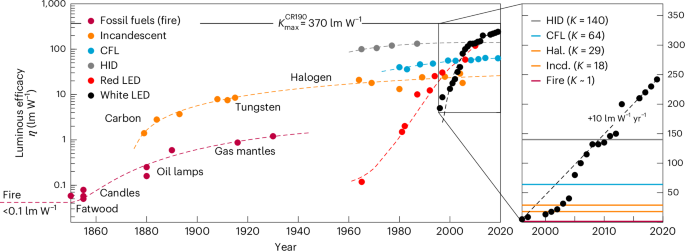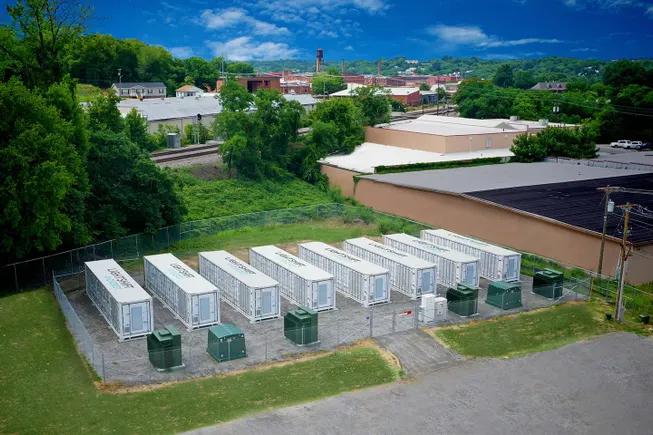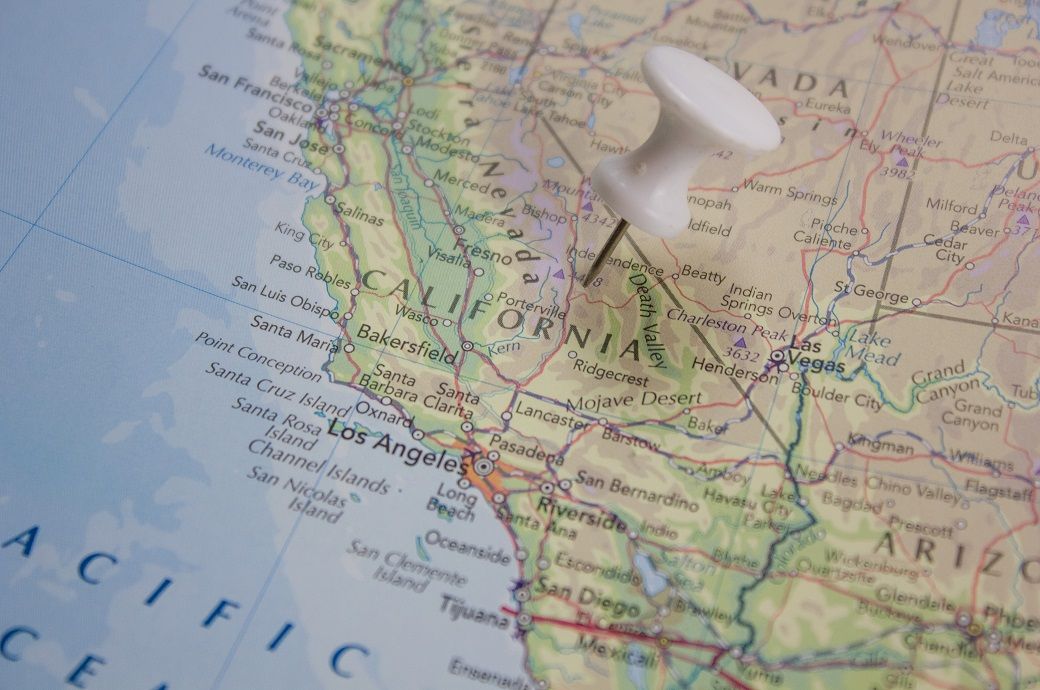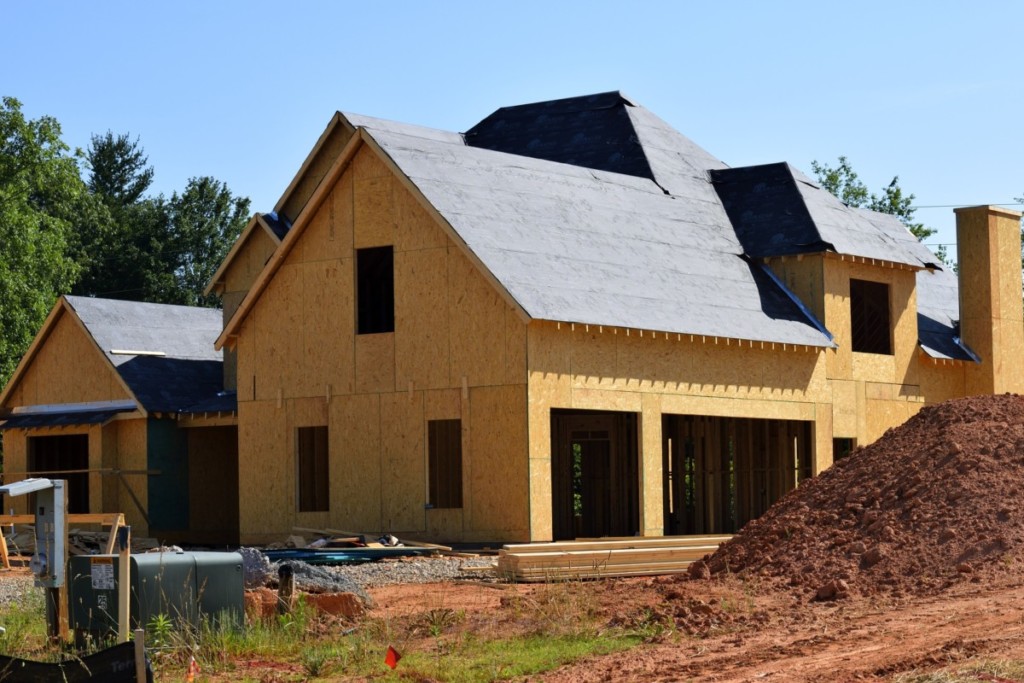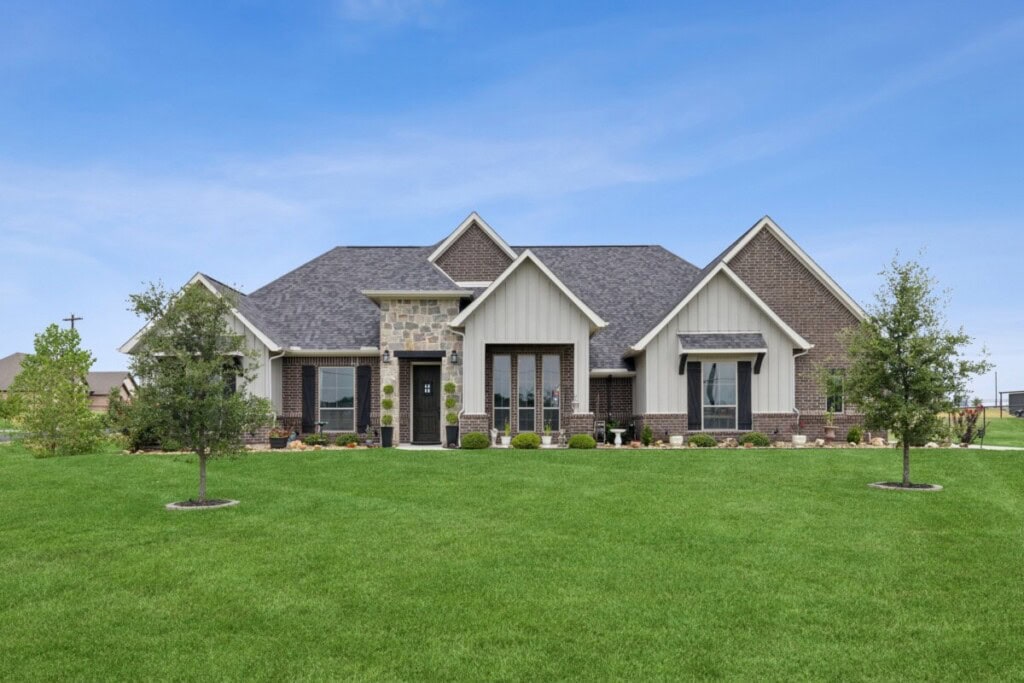10 Pros and Cons of Living in New Hampshire
Is New Hampshire an ideal place to call home? Explore ten pros and cons of living in New Hampshire to gain valuable insights about this state. The post 10 Pros and Cons of Living in New Hampshire appeared first on Redfin | Real Estate Tips for Home Buying, Selling & More.
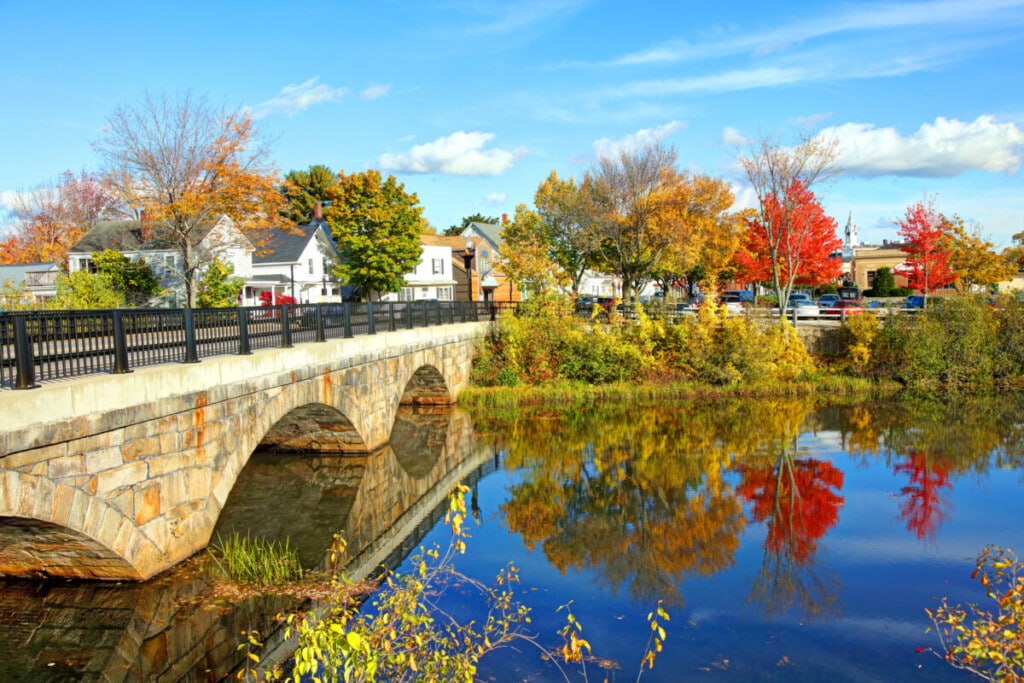
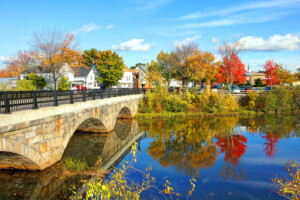
New Hampshire offers a blend of scenic beauty, tight-knit communities, and a slower pace of life that appeals to many seeking a balance of outdoor adventure and a peaceful lifestyle. Known for its charming small towns, strong sense of community, and access to outdoor recreation, the Granite State attracts residents looking for a break from the hustle and bustle of larger cities. However, like anywhere, there are trade-offs to consider. From its higher housing costs to the challenges of rural living, it’s important to weigh the pros and cons of living in New Hampshire before making the move. This Redfin article takes a closer look at what life is really like in New Hampshire, covering everything from its cost of living to the unique vibe and culture that define this New England gem. So whether you’re searching for homes for sale in Manchester or an apartment in Concord, read on to learn if New Hampshire is a good place to live.
Interested in moving to New Hampshire? Check out:
Homes for sale in New Hampshire | Apartments for rent in New Hampshire | Houses for rent in New Hampshire
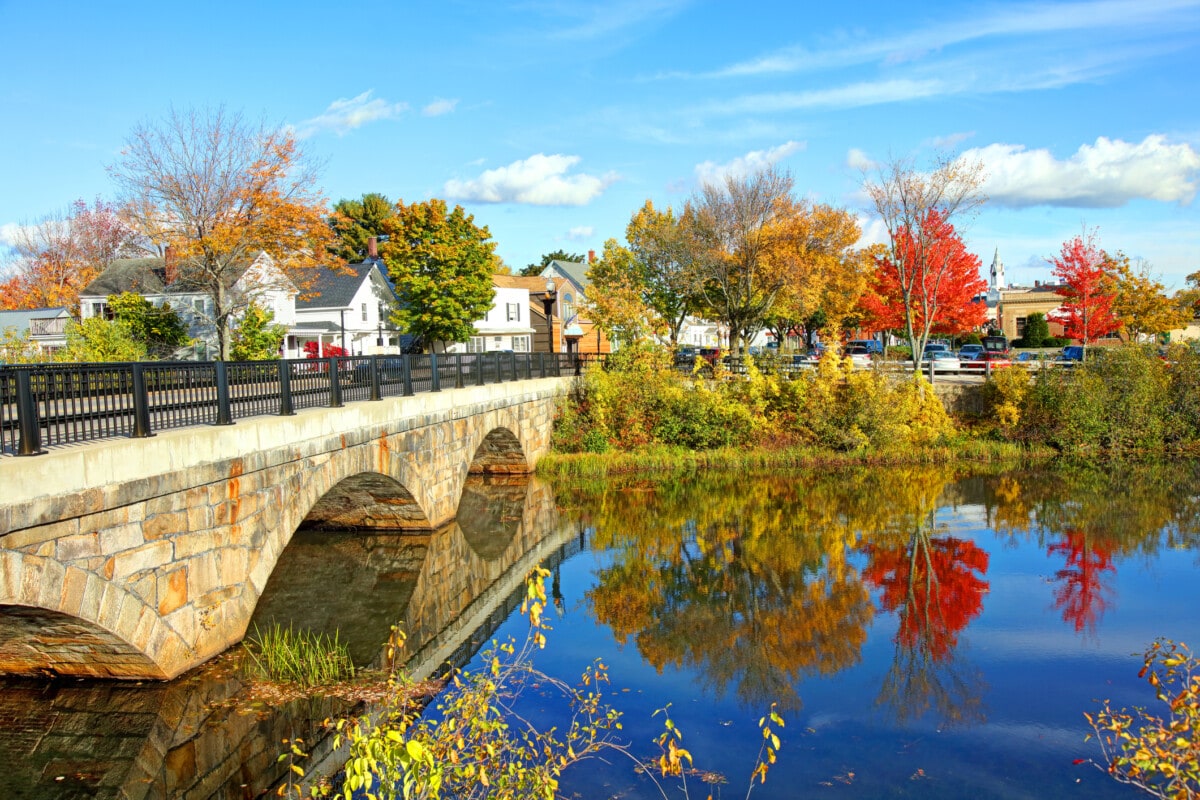
Quick Facts about New Hampshire
| Population | 1,377,529 |
| Median home sale price | $582,600 |
| Average rent in New Hampshire | $1,987 |
| Largest cities in New Hampshire | Manchester, Nashua, Concord |
Is New Hampshire a good place to live?
Yes, if you’re looking for a blend of small-town charm, outdoor access, and a relatively low tax burden, New Hampshire has a lot going for it. With no state income or sales tax, it’s a financially appealing option, especially for those moving from higher-tax states in the Northeast. The state offers a high quality of life with strong public schools and close-knit communities. It’s a place where people value their independence, but neighborliness is still prominent. While winters can be long and cold, New Hampshirites embrace the seasons, whether that’s hitting the slopes in the White Mountains or cooling off by the lake in the summer. Housing prices have gone up in recent years, especially in popular southern towns and near the Seacoast, but overall the cost of living remains reasonable for the region.
Living in New Hampshire at a glance:
- Tight-knit communities: Expect town fairs and neighbors who know your dog’s name.
- A true four-season climate: Colorful falls, snowy winters, wet springs, and warm, outdoor-friendly summers shape daily life.
- Car-dependent: Public transportation is minimal outside of a few southern areas, so driving is the norm.
1. Pro: No sales or income taxes
New Hampshire’s lack of a state sales tax or income tax is a significant advantage for residents, making it an attractive destination for those seeking a tax-friendly environment. The absence of these taxes means that individuals can keep a larger portion of their earnings and enjoy lower overall living costs. This unique financial landscape fosters a sense of financial freedom and independence, making New Hampshire an appealing choice for individuals and businesses alike.
2. Con: High property taxes
New Hampshire’s high property taxes are a notable drawback for residents, as they can put a significant financial burden on homeowners. The Granite State has the fourth-highest property tax rates in the nation standing at an average of 1.77%. While the absence of a state income tax and sales tax may be attractive, these high property taxes can offset potential savings. The burden falls disproportionately on homeowners, particularly in communities with strong public school systems.
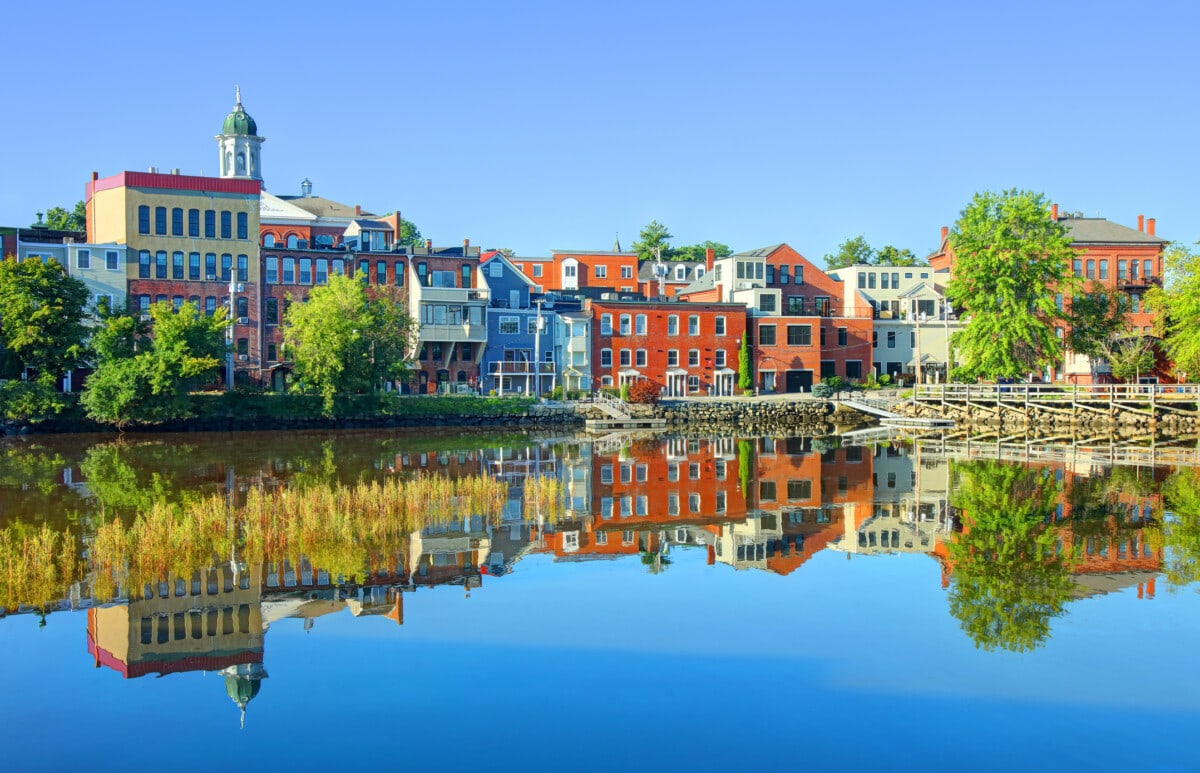
3. Pro: Proximity to major cities
New Hampshire’s location, nestled in the heart of New England, provides residents with easy access to major cities in the region. Boston, one of the country’s most vibrant and economically powerful cities, is just an hour’s drive. This geographical advantage allows New Hampshire residents to strike an ideal balance between the allure of urban opportunities. Additionally, New Hampshire is close to New York and Maine, where there are plenty of things to do and see.
4. Con: Cold winters
Moving to New Hampshire means preparing for winters marked by frigid temperatures, heavy snowfall, and sometimes treacherous driving conditions. The snow and ice accumulation can pose challenges for daily commuting and outdoor activities, making travel more complex and potentially leading to weather-related accidents. Temperatures often drop below freezing and can be uncomfortable and even dangerous for those unprepared. Additionally, winter storms and power outages can disrupt daily life. You’ll want to prepare your home and yourself for New Hampshire’s winters.

5. Pro: Beautiful diverse landscapes
The Granite State has much to offer, from the majestic White Mountains, with peaks like Mount Washington that offer breathtaking vistas, to the picturesque Lakes Region. The dense and lush forests, especially in the North Country, provide endless hiking, camping, and wildlife exploration opportunities. Additionally, New Hampshire boasts a rugged coastline along the Atlantic Ocean, with charming towns like Portsmouth offering a blend of historic charm and coastal allure.
6. Con: Limited transportation options
New Hampshire’s limited transportation options can pose challenges for its residents. The state lacks a comprehensive public transportation system, making it heavily reliant on personal vehicles for commuting and traveling. Many major cities in New Hampshire, including Concord, are categorized as car-dependent. The state’s infrastructure can also be less well-equipped for harsh winter weather, which may lead to road closures and transportation disruptions during the winter months.

7. Pro: Access to outdoor recreational activities
The state is a haven for outdoor enthusiasts, offering hiking in the White Mountains with trails like the Appalachian Trail and Franconia Ridge Loop. You’ll find skiing and snowboarding in popular destinations like Loon Mountain and Bretton Woods, as well as an abundance of lakes and rivers for kayaking, fishing, and boating. Moreover, the state’s extensive network of state parks, such as Franconia Notch State Park and Mount Monadnock State Park, provides opportunities for camping, picnicking, and wildlife observation.
8. Con: Higher housing costs
Housing in New Hampshire is more expensive than many might expect. The state’s median home sale price is $482,600, noticeably higher than the national median of $431,00. In fact, a recent study found that the median household income needed to afford a typical home here is $142,775—significantly above the national average. Demand tends to stay high thanks to the state’s quality of life, limited housing supply, and appeal to both in-state buyers and out-of-staters looking for a quieter, scenic place to live. Competition can be especially tight in southern cities like Nashua and Portsmouth, where proximity to Boston drives prices even higher.

9. Pro: Breathtaking fall foliage
As the leaves transform into shades of red, orange, and gold, the entire state becomes a vibrant canvas of natural beauty. The White Mountains and the Kancamagus Highway are renowned for their stunning fall displays, offering scenic drives and hiking trails where the colorful foliage is a sight to behold. Iconic New England towns like North Conway and Hanover become even more picturesque this season, and visitors and residents alike revel in the opportunity to witness nature’s vibrant transformation.
10. Con: No major airports
While the state does have smaller regional airports, such as Manchester-Boston Regional Airport and Portsmouth International Airport at Pease, it lacks a major international gateway. This can mean limited options and potentially higher costs for air travel, as residents often need to travel to nearby states like Massachusetts for direct and more extensive flight connections.
The post 10 Pros and Cons of Living in New Hampshire appeared first on Redfin | Real Estate Tips for Home Buying, Selling & More.
























































































































